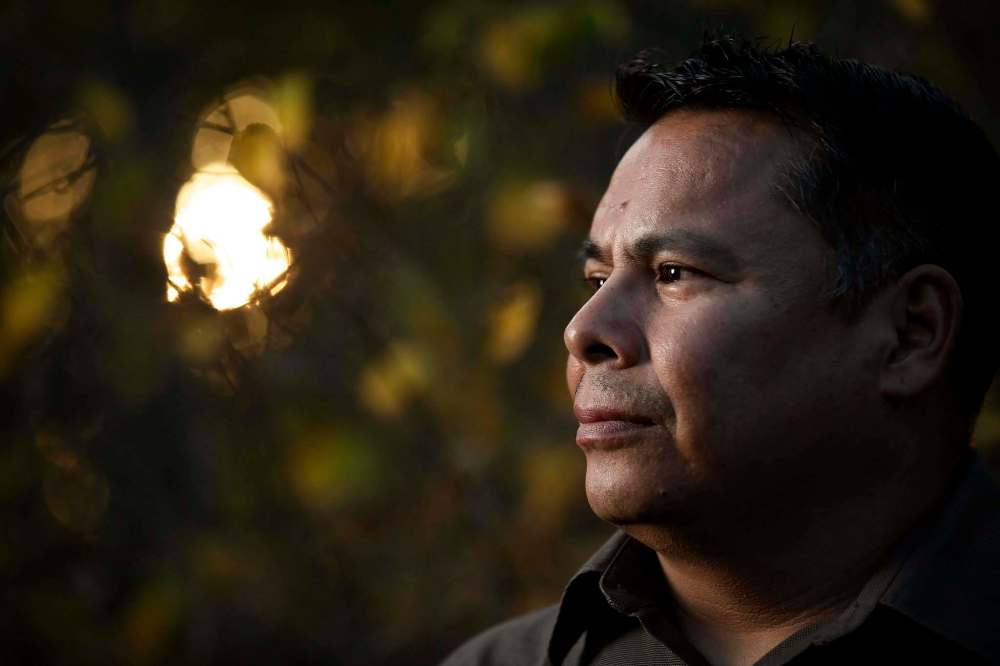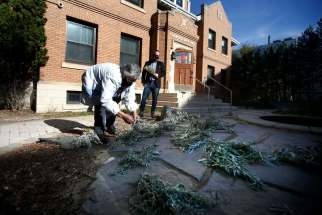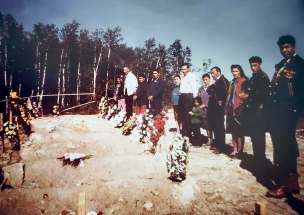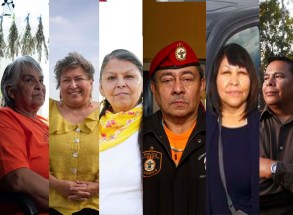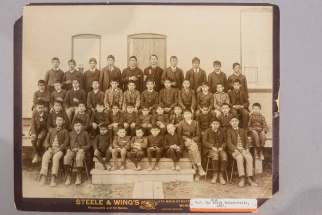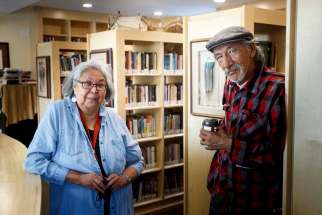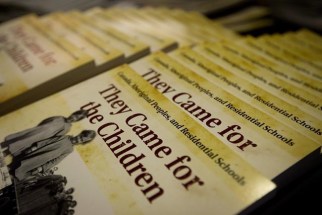Portraits of survivors, tales of strength
Read this article for free:
or
Already have an account? Log in here »
To continue reading, please subscribe:
Monthly Digital Subscription
$0 for the first 4 weeks*
- Enjoy unlimited reading on winnipegfreepress.com
- Read the E-Edition, our digital replica newspaper
- Access News Break, our award-winning app
- Play interactive puzzles
*No charge for 4 weeks then price increases to the regular rate of $19.00 plus GST every four weeks. Offer available to new and qualified returning subscribers only. Cancel any time.
Monthly Digital Subscription
$4.75/week*
- Enjoy unlimited reading on winnipegfreepress.com
- Read the E-Edition, our digital replica newspaper
- Access News Break, our award-winning app
- Play interactive puzzles
*Billed as $19 plus GST every four weeks. Cancel any time.
To continue reading, please subscribe:
Add Free Press access to your Brandon Sun subscription for only an additional
$1 for the first 4 weeks*
*Your next subscription payment will increase by $1.00 and you will be charged $16.99 plus GST for four weeks. After four weeks, your payment will increase to $23.99 plus GST every four weeks.
Read unlimited articles for free today:
or
Already have an account? Log in here »
Hey there, time traveller!
This article was published 29/09/2021 (1531 days ago), so information in it may no longer be current.
Since 2013, Sept. 30 has been known as Orange Shirt Day — to honour the children who survived Indian residential schools and to remember those who did not return home.
It is also now the National Day for Truth and Reconciliation, which asks all Canadians to reflect upon relationships with Indigenous people, remember the harms of the past, and focus on ways to commit to healthy and positive growth throughout all communities today.
National Day for Truth and Reconciliation events
Fox Lake Cree Nation walk
When: 10 a.m. – 11:30 a.m.
Where: Walkers will leave from Victoria Inn and walk to the legislature
Organized by Fox Lake Cree Nation
A group of survivors, leaders and youth from Fox Lake, York Factory First Nation and Tatasweyak Cree Nation left Gillam on Sept. 18 and arrived in Winnipeg Wednesday. They will finish their walk to the legislature Thursday. Elders, residential school survivors, counsellors and First Nations leadership will be in attendance.
Every Child Matters Youth Event
When: 10:30 a.m. – 1 p.m.
Where: Gathering place for Truth and Reconciliation at 445 King St.
Organized by Ma Mawi Wi Chi Itata
The ceremony will launch the Every Child Matters memorial art project. It will include teachings by a community elder, youth presenters, discussions of the memorial art project, and will conclude with burning of the tobacco ties and a feast.
Orange Shirt Day Healing Walk
When: 11 a.m. – 12:30 p.m.
Where: The walk will begin at the Canadian Museum for Human Rights, and will end at St. John’s Park
Organized by the 60s Scoop Legacy of Canada (Manitoba chapter)
The healing walk will honour survivors of residential schools, day schools and the Sixties Scoop, along with their families. Participants will walk from the museum to St. John’s Park on Main Street, where a powwow will take place. Rattles, drummers, and dancers are welcome; public health orders must be observed.
Every Child Matters Powwow
When: 1 p.m.
Where: St. John’s Park
Organized by Wa-Say Healing Centre
A pipe ceremony and lighting of the sacred fire will begin at 12 p.m., with grand entry at 1 p.m. The powwow will include honour ceremonies for Sixties Scoop, residential school and day school survivors, as well as a MMIW Memorial Ceremony for Gary McLean and Ted Fontaine.
Day of Survivor Stories and Discussion
When: 11:30 a.m. – 4:30 p.m.
Where: Winnipeg Art Gallery
Organized by WAG-Qaumajuq
In partnership with the National Centre for Truth and Reconciliation, the WAG will host residential school survivors Betty Ross and Marlene Gallagher to share their experiences with the public. Stories will be followed by a panel discussion with University of Manitoba historian Sean Carleton. (Admission fees will be donated to the National Centre for Truth and Reconciliation; no cost for Indigenous peoples.)
Announcements
● The City of Winnipeg will close all civic offices and lower flags on all city buildings. Public transit buses will acknowledge the National Day for Truth and Reconciliation on their digital signs, and all municipal employees are encouraged to wear orange shirts to work. The Winnipeg sign will be lit up orange in commemoration for the day.
● The Canadian Museum for Human Rights will show solidarity by lighting the Israel Asper Tower of Hope orange from dusk on Sept. 29 until the morning of Oct. 1.
● Red River College will close its campuses to honour the National Day for Truth and Reconciliation. This week, the college has hosted virtual events with Indigenous speakers on Microsoft Teams, but will pause its series to observe the day.
● Universite de Saint-Boniface said it has created a new role of senior adviser for reconciliation and Indigenous education, to be filled by university secretary Debra Radi, who has a long history of involvement with Indigenous organizations and communities. The university will be closed, but will illuminate its façade orange in commemoration of Orange Shirt Day. The university’s athletic teams will sell 200 orange T-shirts, and the proceeds will be donated to the Winnipeg Aboriginal Sport Achievement Centre.
● The Bank of Montreal is donating $600,000 to Indigenous organizations across Canada, including $250,000 for the National Centre for Truth and Reconciliation at the University of Manitoba, for its Na-mi-quai-ni-mak Centre community support fund. The centre will also host a series of online talks on Youtube.
Here are six inspiring stories of Manitoba survivors of the residential school, day school, and child welfare systems:
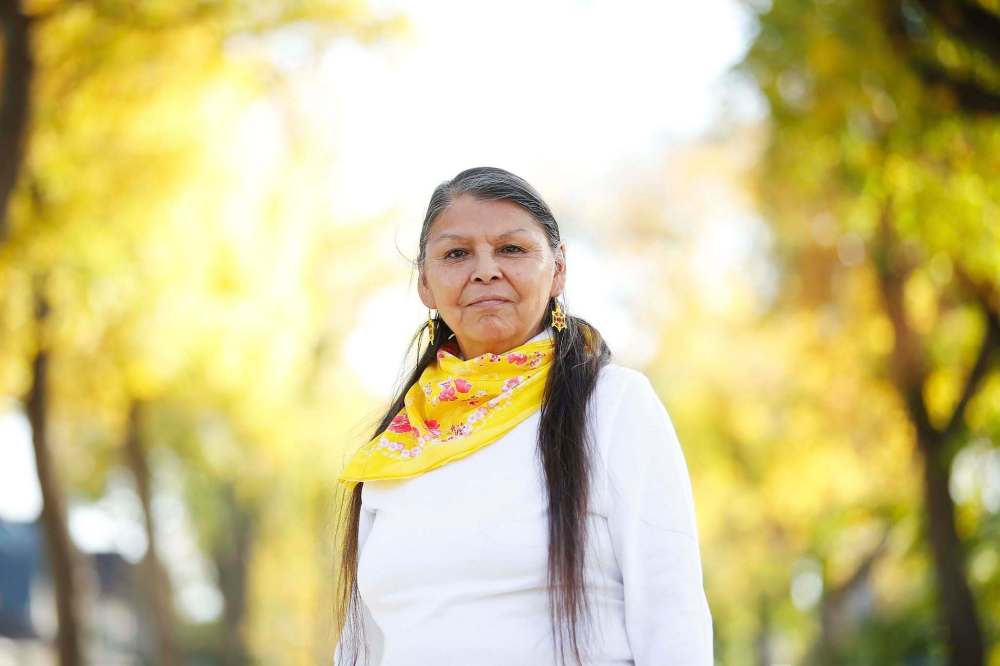
Geraldine Shingoose
Spirit names are Sky Woman and Northern Lights Woman and she comes from the Bear Clan. She is a Saulteaux woman from Tootinaowaziibeeng First Nation who attended Muskowekwan residential school from 1962-71. She is a great-grandmother who believes in faith, belief and kindness. A nationally renowned educator and advocate for residential school survivors across Canada.

Deborah Smith
An intergenerational and first-generation residential school survivor, and chief of Brokenhead Ojibway Nation. She is a well-known advocate for education, economical development, and cultural revitalization for her people and active in advocacy for the Treaty 1 developments at the former Kapyong barracks site in Winnipeg. She recently helped found a food security program at Brokenhead that will support the community’s education, health and wellness, culture and traditional knowledge, land and infrastructure, and economic initiatives.
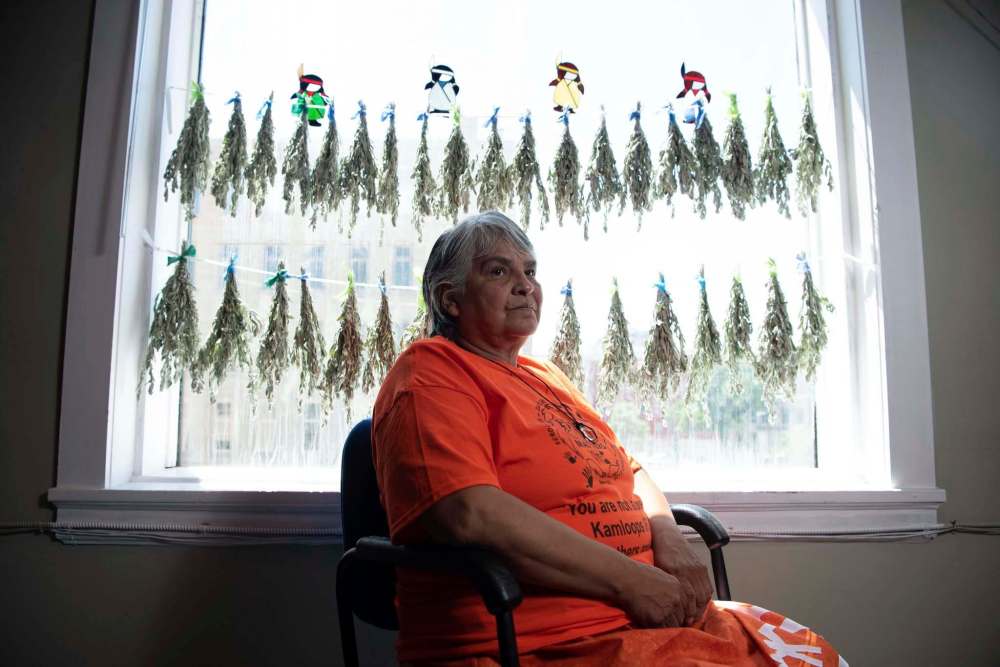
Martina Fisher
From Bloodvein First Nation, Fisher attended Assiniboia residential school in Winnipeg from 1969-72. She is a strong advocate for culture and language, working as a cultural adviser at Wa-Say Healing Centre, an organization in downtown Winnipeg that works with residential school survivors. One of these initiatives was spearheading Orange Shirt Day events that honour the experiences of those survivors.
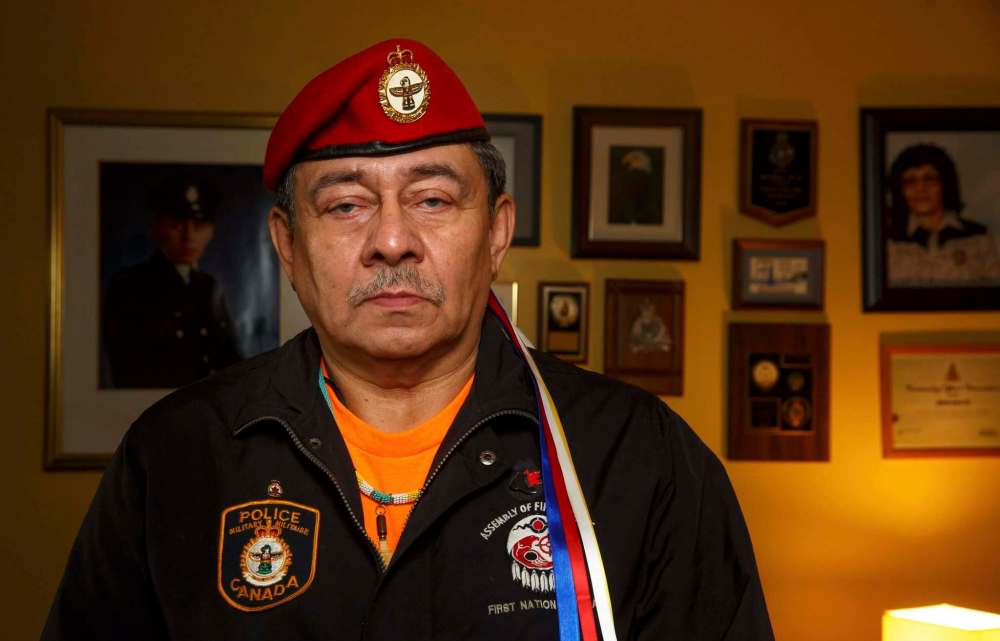
Melvin Swan
Born in Dog Creek and attended Indian day school in Dauphin. He enlisted in the Canadian military and became a member of Princess Patricia’s Canadian Light Infantry and the military police, serving assignments across Canada and abroad (England, Germany, Norway). Now retired, he is a nationally-renowned advocate for Indigenous veterans and won a human rights case against the Canadian Armed Forces for discrimination in 1994.

Margaret Swan
A survivor of the day school system who spent her early years at Lake Manitoba First Nation. She later became chief of her community, and then grand chief of the Southern Chiefs’ Organization — the first female to hold the role. Swan now works with SCO as a senior political adviser and chairwoman of the board for the Southern First Nations Network of Care. A well-known advocate on the issue of child welfare in Indigenous communities, Swan is acting director of Child and Family Services for SCO.
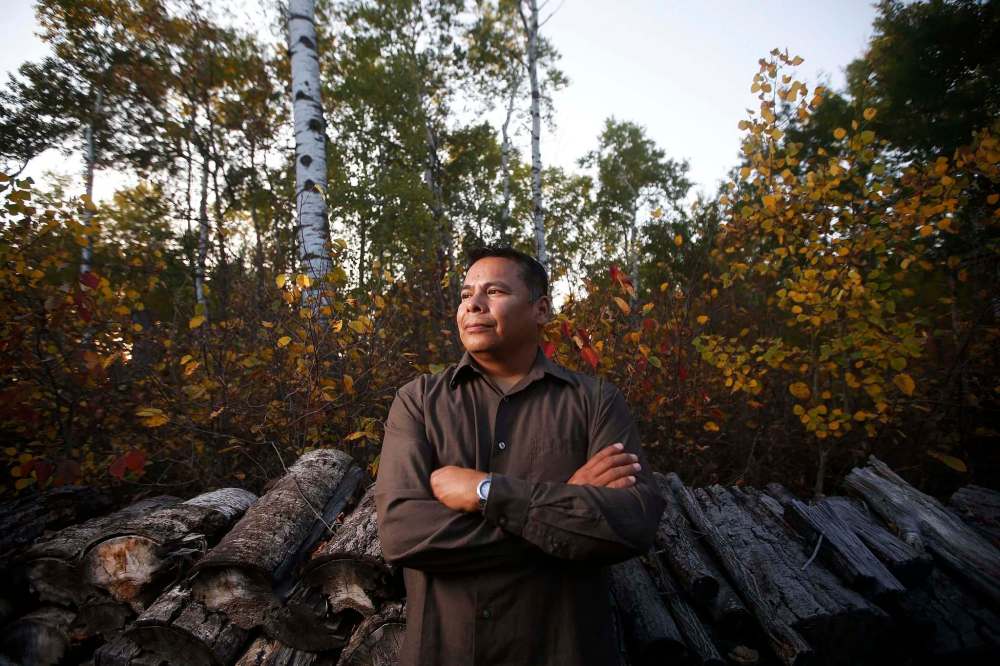
Bradford Bilodeau
From Tootinaowaziibeeng and a survivor of the “Sixties Scoop,” an initiative where institutions across Canada removed Indigenous children from their families and homes, impacting communities for generations. He was recently featured in a short film directed by Roger Boyer, which shows his journey to speak with his birth uncle about the day he and his siblings were taken from their mother. He is now a speaker on the issue of Indigenous children in care, amid writing a play about his experiences.
